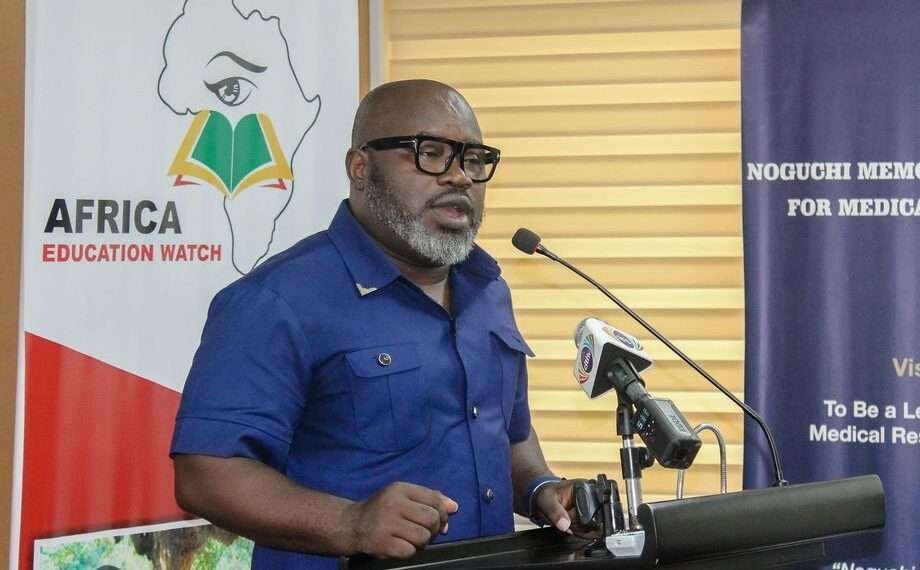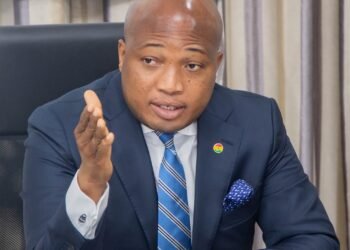Executive director for Africa Education Watch (Eduwatch), Kofi Asare, has called on government to enhance and promote literacy in the country.
According to him, government must take keen interest in the literacy growth and development of Ghanaians. He revealed that there’s sufficient evidence to prove that there’s correlation between one’s level of literacy and their economic status.
With distribution of illiteracy being 14% in just the northern region, Mr Asare noted that the critical part of a country’s economy is equally linked with the improvement of the citizens overall education.
” So, if you have 7.9 million Ghanaians, aged above six, who cannot read or write, it means that such people are disconnected from a lot of opportunities that have a bearing on their socio-economic lives. So, it makes it important that we focus on literacy enhancement if you want to promote poverty eradication…”
Kofi Asare
Furthermore, Mr Asare explained that if government desires to promote and facilitate digital and financial inclusion in a digitized world, it can’t participate if the citizens are not literate. To this end, he emphasized that literacy in the 21st century cannot be overlooked any longer.
“… I think there’s an opportunity in technology, and I think it’s time for countries including Ghana, to leverage on mobile phones and internet penetration, and technology infusion and deploy adult literacy within the population, so that we can enhance the ability of people to read and write.”
Kofi Asare
Marking world literacy day today, September 8, 2023, Mr Asare highlighted that there are existing strategies aimed at addressing illiteracy in the country. Among other initiatives, he noted that beyond formal education system, government has deployed the adult educational program via the complementary education agency and other agencies responsible for delivering adult literacy.
“Within the school environment, if you read the context in which IMF programme is supporting Ghana, the programme [states] that literacy standards are low at the primary level and recommends that government makes huge investment in primary education and improve the quality of student learning.
“So, anytime government deploys textbooks and teachers to schools, all these are targeting to enhance the quality of literacy in our schools… There are various agencies both within government and outside government that are propagating literacy development…”
Kofi Asare
About 8 million Ghanaians illiterate
Meanwhile, the Ghana Statistical Service (GSS) has revealed that about 8 million persons in the country can neither read nor write. It further noted that the figure represents some 4.6 million illiterate females and 3.3 million illiterate males. This, it stated, reveals a female disadvantage that has been persistent over time.
“Findings from an upcoming report from the Ghana Statistical Service (GSS) reveals that 7.9 million persons aged 6 years and older in Ghana are illiterate i.e., they cannot read and write with understanding. The report also finds that between the 2010 and 2021 Population and Housing Censuses (PHC), 1.2 million more illiterate adults (15 years and older) were added to the population – from 4.3 million in 2010 to 5.5 million in 2021.”
Ghana Statistical Service
Furthermore, the GSS highlighted that Ghana has lower levels of adult literacy compared to its comparators – lower middle income and sub-Saharan African countries. This, it explained, is persistent especially after three years of the provisions on illiteracy captured in the Education Strategic Plan (ESP) 2018-2030.
“This has necessitated the production of the 2021 PHC Thematic Report Brief on Illiteracy in Ghana which will be released later this month. The report provides direction for stakeholders to target hotspots and drivers of illiteracy in Ghana as it focuses on three broad areas; trends, patterns and correlates of illiteracy.”
Ghana Statistical Service
READ ALSO: Interdiction Of Police Officers Undermines Work Of Committee























